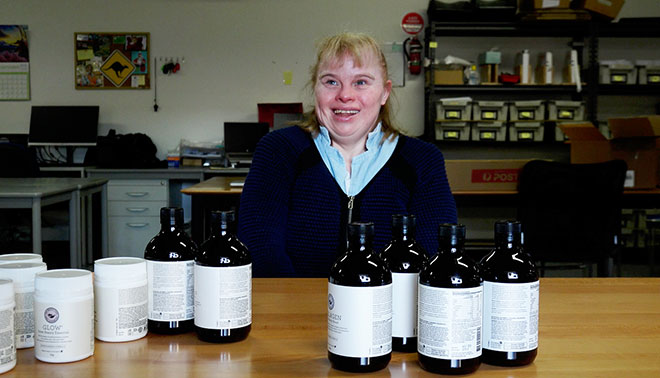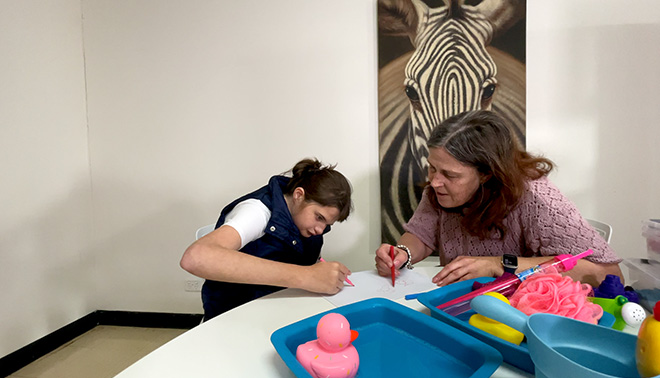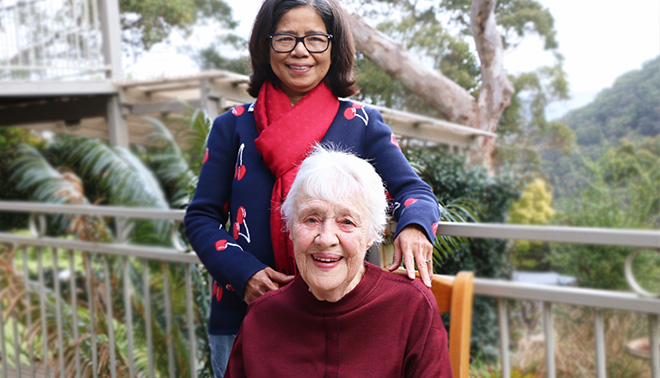From Aged Care to Independence in SDA
Catherine (*name changed to protect her identity) was admitted to an aged care facility at the age of 36, on the basis of an acquired brain injury. For the next 25 years, she was all but forgotten by her community. She lived with people with severe dementia who were declining all around her and was confined to an indoor existence without the simple pleasures of life, such as sitting in the sun. Catherine’s story, sadly, is not unique.
Young People in Residential Aged Care.
In 2019, the Royal Commission into Aged Care Quality and Safety held a special hearing into younger people in aged care. Some of the people who testified to the Commission were in their twenties or thirties when they were moved into aged care, many having lived in these facilities for decades.
As a direct result of the Royal Commission, the Australian Government developed the Younger People in Aged Care Strategy 2020-2025. The National Disability Insurance Agency has a role to support NDIS participants under the age of 65 who find themselves in residential aged care, giving them more choice and control over their living arrangements. Many people are able to return to supported living with adequate supports in place. The stated goal of the Strategy is for everyone under 65, to be transitioned by 2025.
One of many stories of tragedy and neglect.
Catherine suffered an acquired brain injury in her 30s, and after a period of hospitalisation, was moved to an aged care facility. A mother, a sister and a daughter, she found herself assigned to a locked dementia ward in the absence of other alternatives. Family visits to Catherine dwindled over time. A succession of roommates joined her as they fulfilled their own destinies – in most cases for a short period of time as they battled the final stages of dementia.
Most of her roommates presented with advanced dementia, including paranoia and hallucinations and, in many instances, an inability to communicate on Catherine’s level. Catherine did not mentally decline in the same way. Her physical health, however, especially her strength, declined to the point where she required a wheelchair for mobility.
Unisson support co-ordinator (COS) Judy says Catherine became such a fixture at the aged care facility, that nobody thought to do anything about her situation. “For 25 years, this was her world. She was mostly confined to indoor environments, she watched TV all day in the communal area, and without financial independence, her clothes and shoes were hand-me-downs from various residents who had died at the facility. Catherine’s possessions were almost non-existent, except for some faded family photographs on the wall and a few items in a bedside drawer. It was literally a story of tragedy and neglect.”
When the National Disability Insurance Scheme (NDIS) was introduced, Catherine became eligible for funding. She received some support from Unisson’s support workers – for example, to visit the local shopping centre across the road. More recently our support coordination team began work on Catherine’s transition from aged care. This included working closely with the NDIS, YPIRAC (the Younger People in Residential Aged Care program, sponsored by the Commonwealth Government and operated by Ability First), and liaising with Catherine’s relatives.
The lost years.
Judy recalled meeting Catherine for the first time and being surprised by her demeanour. She says, “Despite everything, she was still cheerful. She was not depressed, but happy and pleasant, able to have a good conversation, and displaying a wicked sense of humour.”
However, the real tragedy lay in those lost years and lack of attention. According to Judy, “She once asked me what colour her hair was. It was like she hadn’t seen herself in the mirror for years. When I told her it was grey, she said she would like to dye her hair like mine. She hadn’t done anything for herself, anything that most people would consider normal, in decades.”
Progress on Catherine’s case slowed during the COVID lockdowns, and Unisson support workers were unable to enter the aged care facility for many months at a time. Catherine’s isolation returned and was made more difficult by the failure of her powered wheelchair. External outings for Catherine ceased altogether until Unisson was able to organise a new wheelchair for her. She had become frail and unable to support her own weight, having been largely bedridden, and the new powerchair was essential for mobility and independence.
Catherine’s eyes also needed some attention. She had developed cataracts which required surgery, but this wasn’t picked up on by the health carers at her facility, despite complaints about her eyes. Judy listened to Catherine’s concerns and arranged for her to see an eye surgeon. She has had one cataract removed and will be having the second cataract removed soon.
So what does the future look like for Catherine?
In February, Catherine finally moved out of aged care after 25 years in the same location, and into Specialist Disability Accommodation (SDA). She lives within a large home in her own unit, with one flatmate and her own ensuite and self-contained kitchen. The support team at Catherine’s new home bought her brand-new sheets and towels in her favourite colour and decorated her bedroom to suit her tastes.
Judy says she is hopeful that Catherine will, over time, be able to regain some strength and possibly learn to walk again after a lack of exercise spanning decades. She will also re-learn basic living skills, such as cooking, and be supported to be independent again. Last week Catherine asked Judy about her favourite meal, and they had a discussion about roast chicken and vegetables. Catherine can’t wait to invite Judy over and to cook it – and once again enjoy leading a normal life in her new SDA home.
The role of support co-ordination, and Judy’s work in particular, has made a huge difference to Catherine’s life, and she and Judy have become close. For Judy, It Starts With Heart, as she has put her energy and passion into achieving this outcome for Catherine.
Judy smiles when she says, “Catherine is now thinking of all the things she can do!”
The NDIS YPIRAC planner who Judy worked closely with commented on this case, saying, “Catherine’s journey, and the obstacles that she has overcome over the past few years to achieve this amazing outcome are truly inspiring. It has required ongoing determination from Judy, and perseverance with the NDIS, to give her a new lease of life. This is an amazing outcome.”



